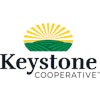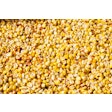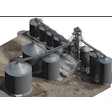While driving through the empty expanses of Central Illinois, returning to Wisconsin after my visit to Griggsville, IL-based JBS United, Inc., I found the inspiration for this column. Tuned into National Public Radio, the guest speaker noted a Russian proverb: “The tallest stalk of wheat is always the first to get cut down.” I had heard it before; however, on this occasion, it took on a whole new meaning.
In the realm of industry — where there is more at stake than the bruising of an ego — some supervisors and managers may be reluctant to introduce new ideas — hesitant both in imposing them on their subordinates and/or in presenting them to their superiors. In fact, depending on the culture of the organization, some probably bite their tongues and resign themselves to the status quo It’s not that they don’t believe in their proposition, but perhaps the task seems too daunting. Maybe they’ve made suggestions in the past, only to have them immediately squashed by upper management without being taken into consideration. Or maybe they were set up to fail by not being given enough time or resources to get their ideas off the ground.
Whatever the case, whenever a fresh perspective or idea is dismissed for the wrong reasons, it’s ultimately the company that will suffer.
For those who think outside of the box can find themselves facing more than the growing pains of new process implementation or technology. Often times, these challengers of the comfort zone are met by wrath of internal naysayers who are perfectly content in stagnancy.
The argument of the antagonists: “It’s worked in the past” or “This is the way things are, and the way they always will be.” Despite the obvious benefits of innovation, the haters will hate.
Meanwhile, companies who dare to challenge convention, reap the rewards of daring to define themselves as that “tallest stalk of wheat.” JBS United, Inc. company profile on pg. 50 highlights what can happen when a firm steps up and challenges tradition. By seeking new internal and external business models, the company’s grain division basks in monumental growth.
Coincidentally, this notion also ties into the stance of the proponents of developing a quality management system featured in “Grain Traceability = Good For Business” on page 8. They argue that imposing such systems — whether they are dictated by government regulations or not — adds to the bottom line and can enhance the culture of an organization through education and process improvements.
In the end, you can only do what’s best for your business, aim to grow and challenge others to do the same










